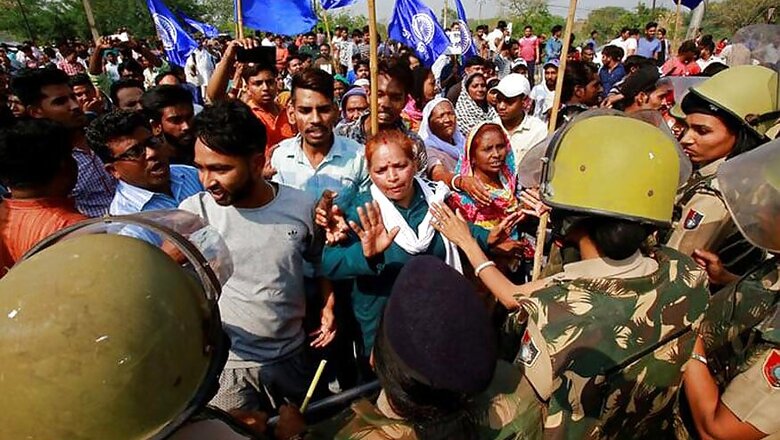
views
New Delhi: Ahead of a nationwide bandh called by Dalit groups against Supreme Court verdict on the SC/ST Prevention of Atrocities Act, the Union Cabinet has given its nod to an amendment bill to restore original provisions of Dalit atrocity law aimed at overturning the court verdict.
The bill will be introduced in the ongoing Monsoon session of the Parliament. The two-member bench of the apex court in March this year had barred immediate arrests in cases registered under the SC/ST Act leading to massive protests by Dalit groups across the country as they said that the safeguards diluted the act and rendered it toothless.
Violent protests on April 2 had resulted in arson in central and north India that killed nine people. Dalit groups had given a call for second protest on August 9 seeking government intervention to overturn the apex court verdict before the end of the ongoing session of Parliament.
BJP ally and Lok Janshakti Party president Ram Vilas Paswan had led the call to bring a new law to overturn the order. Several ruling party MPs belonging to Dalit and tribal communities had also backed the demand.
A ministerial committee headed by Home Minister Rajnath Singh was earlier formed to look into the changes being sought in the bill.
Dalit organisations spearheading the campaign for the restoration of stringent bail provisions in the act had also written to all Dalit MPs and MLAs on the issue.
A meeting of dalit MPs from the NDA at the start of the session had reiterated the demand. The meeting also expressed reservations on the appointment of Justice AK Goel as the Chairman of National Green Tribunal Chairman in July this year, just a day on demitting office.
The SC order by two-member bench of Justice Goyal and Justice UU Lalit had ruled to introduce anticipatory bail provisions for arrests under the act.
The Supreme Court later justified the order saying even Parliament cannot allow the arrest of a person without a fair procedure and asserted that it has protected the fundamental rights to life and liberty of innocents by ordering prior scrutiny of complaints.



















Comments
0 comment